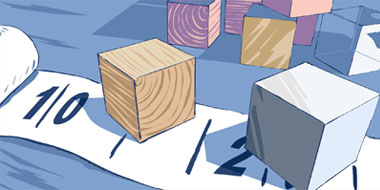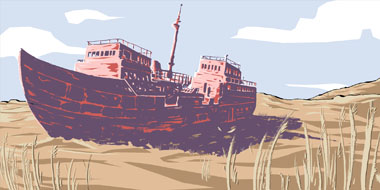The Inquiry Project takes a unique approach to a study of matter for grades 3–5, bringing together core ideas, scientific practices, and crosscutting concepts. The curriculum for each grade is built around a network of science concepts. These concepts are relevant to understanding matter and include ideas about material, weight, and volume. These ideas are essential for all of science and are key to understanding the particulate model of matter in secondary school. In the Inquiry Project curricula, concepts related to matter are developed over time across grades 3–5.
![]() Watch the Video Introduction to the Inquiry Curriculum
Watch the Video Introduction to the Inquiry Curriculum
Grade 3

In grade 3, investigations of weight and material are front and center and volume is introduced briefly at the end of the unit. Within their investigations, students learn to use data tables and measure lines to represent weight. They express their ideas through discussions, writing, and drawing.
Grade 4

In grade 4, students investigate properties of earth materials. They learn to distinguish and measure weight and volume and investigate their relationships in different solid and liquid materials. By the end of grade 4, students ask which properties of matter stay the same during transformations such as crushing (weathering) and reshaping, and which properties do not.
Grade 5

In grade 5, students investigate properties of gases. They deepen their understanding of matter as they investigate phase change and transformations of water as it freezes, melts, evaporates, and condenses. By the end of grade 5, students are able to describe transformations of water at two scales: the macroscopic or visual scale and in terms of particles that are way too small to see.
As they learn about the core idea of matter, students in grades 3-5 use scientific practices that are central to inquiry such as reasoning from evidence, building and using models, and developing explanations. They also learn about crosscutting concepts that span the disciplines of science, such as system and scale.



